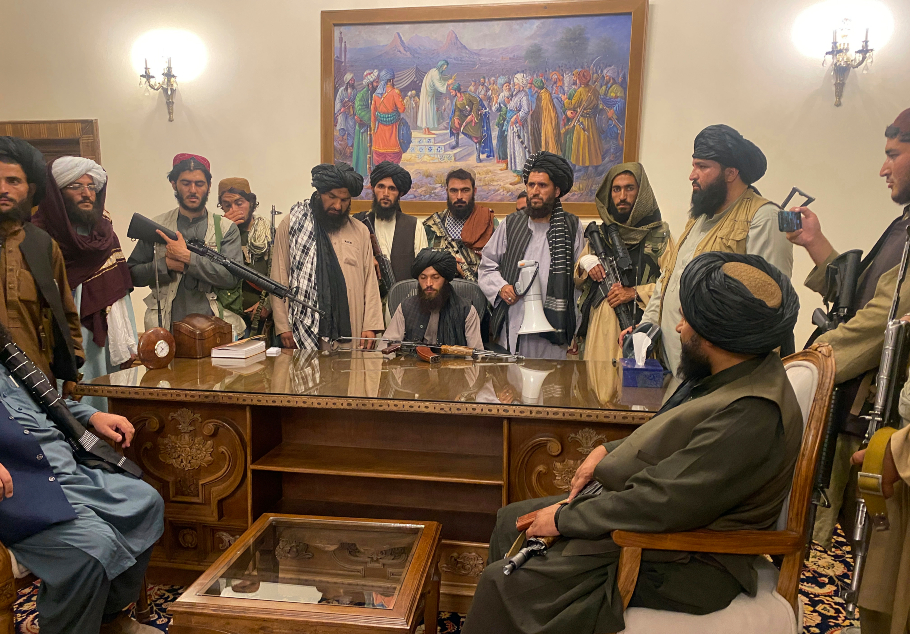
New Taliban govt will push Afghanistan into near-isolation

Afghanistan is fast hurtling towards near-total international isolation. This, in one sentence, is the outcome of the new interim government set up by the Taliban in Kabul, three weeks since recapturing power from the US-mentored Ashraf Ghani government.
The so-called caretaker government will be headed by Mohammad Hasan Akhund, a protégé of the late Taliban ideological chief Mullah Omar. Abdul Ghani Baradar, who played a key role in peace talks with the United States, is Akhund’s deputy.
The interior minister is Sirajuddin Haqqani. His naming is of particular concern to India as the Haqqani network is considered an extension of the Pakistani establishment.
The character of the 33-member Taliban government makes it unequivocally clear that there is no compromise in its core belief on the primacy of its interpretation of Islam – in all aspects of life, particularly in governance.
Also read: ‘Why should India-Taliban talks be discreet? Why should we be defensive?’
What has angered Afghans living abroad, including diplomatic officials, is the absence of anyone from the previous Ghani government or any moderates in the new dispensation. This, in the context of reports that the Taliban was considering forming an “inclusive” government. On the contrary, many chosen in the new government have been categorised as wanted terrorists by the United Nations, indicating that the dispensation is anything but inclusive.
The Indian foreign ministry, in particular, has so far not publicly reacted against the new Taliban government. But indications are that any chances of a civil relationship with the Afghan ‘Islamic Emirate’ have receded. The presence of a Pakistani-backed Haqqani representative in the government has put paid to New Delhi’s hopes, even if slim, of any sort of peaceful relationship, leave alone a friendly one.
India is not alone. Western governments too have reacted with shock over the contours of the new governing outfit in Kabul. Even Russia, which had made some overtures in the initial days after the Taliban takeover on August 15, seems to have gone silent on how it would relate to the latest developments in Afghanistan.
While Pakistan is exulting as the Taliban government now satisfies Islamabad’s long-held vision of extending its “strategic depth” up to Kabul, China has moved quickly to market its Belt and Road Initiative (BRI) with the ultimate hope of having a political and economic say in Kabul.
Also read: Taliban has a new virulent headache called the Islamic State
Beijing has announced $30 million in aid to Afghanistan, which must be most welcome for the Taliban. Reports have appeared over the last few days stating that Afghanistan is slipping into a humanitarian crisis with the lack of essentials and the near-bankruptcy of the government.
Whatever the fears in China of a possible Islamic blowback in its own troubled province of Xinjiang may now not transform into reality given that the Taliban will require all the possible help it can from anywhere in the world. It cannot literally afford to antagonise Beijing.
The only hope that the Taliban government may yet modify its character is the fact that the government is still termed as an interim arrangement. This opens the possibility of changes and a readjustment in the near future depending on how well the Taliban government fares in the coming weeks.
Already the Taliban is finding they are not entirely welcome given the protests that have sporadically erupted in Afghanistan since the takeover. After the announcement of the interim government, Afghan embassies in several parts of the world including in New Delhi have said they will not recognise the new government. They have even continued to fly the previous Afghan national flag atop their buildings.
Given that Afghan embassies have revolted against the new government in Kabul what this means is that dissident Afghan officials abroad will become “persona non grata” and the Akhund government will now have to name new diplomats to run their embassies abroad.
In the event there is no change in the trajectory chosen by the new Taliban government and the rest of the world chooses to keep it at a distance, the resulting isolation may well turn Afghanistan into an international ‘black hole’. The United Nations will not be able to exert any sort of influence in Afghanistan, international agencies too will find their role seriously limited while global NGOs in the areas of development and human rights will be unable to intervene in any meaningful way in the country when dissidents and free-thinkers are targeted by the Kabul government.
On paper, the Taliban has said it would like to have friendly relations with all countries but has qualified that saying it will only support decisions and agreements that are in consonance with the Sharia and other Islamic laws.
The one possible way countries across the world can have a say in Afghanistan is through Pakistan and to an extent via China. But on the issue of Afghanistan, Islamabad has shown over the last 20 years that it is a slippery customer and reluctant to act against the Taliban and, by extension, against its own interests.
Also read: Taliban had it easy so far, now comes the real challenge
As for China, it is still early days. If Beijing manages to get a foothold in Kabul, the US-led West may use it to push some sort of moderation into Taliban politics.
India loses out on both counts due to its continuing hostility with Pakistan and its cold relationship with China. Amidst this is New Delhi’s fears of a boost to Islamic separatists in Kashmir and a rise in insurgency there in the near future.
The rest of the world can now only hope for a sustained resistance from common Afghans to the Taliban government, especially in urban centres like Kabul, where in the last 20 years there has been rise in secular and liberal politics with an entire generation heavily influenced by it.


